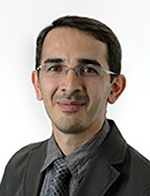Energy Transition with Carbon Capture/Storage/Utilization: The Integration Challenges and the Role of Flexible Manufacturing
Date: 2022/07/01 - 2022/07/01
Academic Seminar: Energy Transition with Carbon Capture/Storage/Utilization:
The Integration Challenges and the Role of Flexible Manufacturing
Speaker: Kaveh Khalilpour, Associate Professor, Faculty of Engineering and IT, University of Technology Sydney
Time: 10:00 - 11:30, July 1, 2022 (Beijing Time)
Location: via Feishu, Meeting ID: 886 7684 931
Abstract
With the industry and society heavily reliant on fossil fuels, the 100%-renewable objective, as a widespread option, appear to be a long-term ambition and extreme-case planning scenario, unless at small scales. As such in recent years, net-zero emission (NZE) scenario has been receiving increased attention. The NZE, unlike 100%-renewable, allows consideration of any source of energy in the planning as far as their greenhouse gas emission footprint are neutral. This allows fossil fuel reliant industries to continue during the transition period, through adoption of emissions mitigation technologies. Carbon Capture Storage and Utilisation (CCSU or CCUS) is one of the key approaches to address this necessity by elimination of the CO2 from the energy-consuming sites, before or after consumption/combustion.
The integration of CCSU with industries however is sophisticated and requires detailed process design, integration, and market modelling and analysis. This presentation will give an overview of CCSU processes, and the integration challenges. It will also demonstrate the significance of flexible manufacturing mindset in efficient integration of CCSU processes.
Biography
 Associate Professor Kaveh Khalilpour works in the Faculty of Engineering and IT, University of Technology Sydney (UTS), Australia. He is an interdisciplinary academic in the area of sustainability and energy informatics. His key expertise lies in the application of optimization and decision-making algorithms for addressing the emerging problems in the net-zero-emission transition. Over the last decade, his research has been majorly focused on the integration of various energy storage types with electricity and gas networks as a necessity of network decentralization and high renewable technology uptake. He has published two books on energy systems integration including “Community Energy Networks with Storage” and “Polygeneration with Polystorage for Chemical and Energy Hubs”.
Associate Professor Kaveh Khalilpour works in the Faculty of Engineering and IT, University of Technology Sydney (UTS), Australia. He is an interdisciplinary academic in the area of sustainability and energy informatics. His key expertise lies in the application of optimization and decision-making algorithms for addressing the emerging problems in the net-zero-emission transition. Over the last decade, his research has been majorly focused on the integration of various energy storage types with electricity and gas networks as a necessity of network decentralization and high renewable technology uptake. He has published two books on energy systems integration including “Community Energy Networks with Storage” and “Polygeneration with Polystorage for Chemical and Energy Hubs”.
